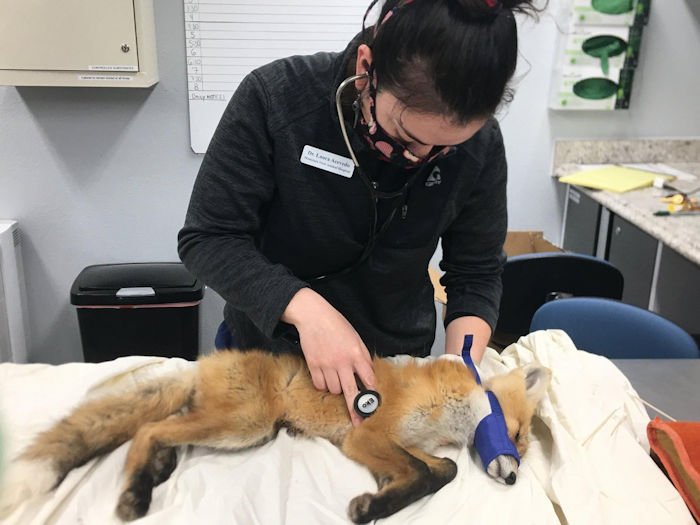Think Wild offers some tips on what to do if you find baby wildlife alone

BEND, Ore. (KTVZ — Springtime gives birth to an abundance of baby wildlife here in Central Oregon, which means residents and visitors are more likely to have wildlife encounters. While coming across a baby bird or mammal may be a poignant experience, Bend Wildlife Hospital, Think Wild, urges anyone who finds a baby wild animal not to assume they are orphaned or to take immediate action.
If you come across baby wildlife and didn’t see the animal get caught by a predator or find an obvious injury, further action might not be required. Look in the bushes, grass, and sky to see if the parents are nearby. Listen for the parent's calls and observe from a distance in case the parents return.
This step is crucial, as it prevents potential "babynapping" situations with baby animals left alone while the parent forages or hunts. It is common for some baby wildlife, including deer, to be alone while the parent searches for food. Do not assume a baby animal is orphaned just because they are isolated. Allow time for the parent to return.
If the animal does indeed appear to be orphaned, take a quick photo and text it to Think Wild's hotline number at (541) 241-8680. Think Wild's highly trained staff or volunteers will be able to tell the age, condition, and species of the animal from the photo and talk you through what the next course of action should be.
If they ask you to take the animal to a licensed rehabilitator, please keep it in a quiet, dark, and warm location. Please do not try to feed baby animals, as different species have very different nutritional needs, and feeding improper diets can be lethal.
If you want to learn more about Think Wild and their upcoming baby season, stop by the Second Annual “Baby Season Baby Shower” open house on Sunday, May 22 any time from 4:00 - 7:00 PM PST at Bend Cider Co. in Tumalo. There will be live music, raffles, a silent auction, and $3 of every cider purchase will support Think Wild. You can also get involved remotely by ordering supplies directly to the address below and bidding on auction online here.
Here are things to consider when you find a baby animal:
- Wild animals have unique nutritional, feeding, care, and rehabilitation requirements, and removing or capturing wildlife from the wild and keeping it in captivity without a permit is against the law.
- If your pet has caught a wild animal, it will need help as soon as possible from a licensed wildlife rehabilitator or veterinarian. Bring the pet indoors immediately as a dog or cat will remember where the nest is and may put other animals at risk.
- If a bird or small mammal is not injured, they may have fallen from its nest with mom still nearby; look and listen for the parents from a distance to see if you can spot a nest or adult of the same species nearby. If so, it may be possible to reunite the baby with the parents.
- If the animal is in danger, you can move them to a safer location wearing gloves. Do not handle mammals with your bare hands.
- Mother deer often leave their fawns alone for hours while they forage for food. If mom doesn't come back for over a day or you suspect an injury, contact Think Wild.
- Rabbits are very fragile and easily frightened. You can prevent harm to them by checking your yard carefully for rabbit nests before you mow. Baby rabbits found alone in a nest are usually not orphans. Currently no rehabilitators in Oregon can accept rabbits for care due to Rabbit Hemorrhagic Disease Virus-2 in Oregon. ODFW and ODA veterinarians prohibit wildlife rehabilitators from accepting rabbit patients until they know more about the extent of this outbreak in Oregon. RHDV-2 is a highly pathogenic and contagious calicivirus affecting all rabbits, domestic or wild, and closely related species. It does not infect other animals or people but is often fatal for rabbits.
###
This list is non-exhaustive, but we hope that you find it helpful. If you ever have any questions, Think Wild’s wildlife hotline, (541) 241-8680, is available seven days a week from 8 AM to 5 PM. Think Wild is a 501(c)(3) non-profit organization, and tax-deductible donations can be made at www.thinkwildco.org/donate or mailed to PO Box 5093 Bend, OR 97708.